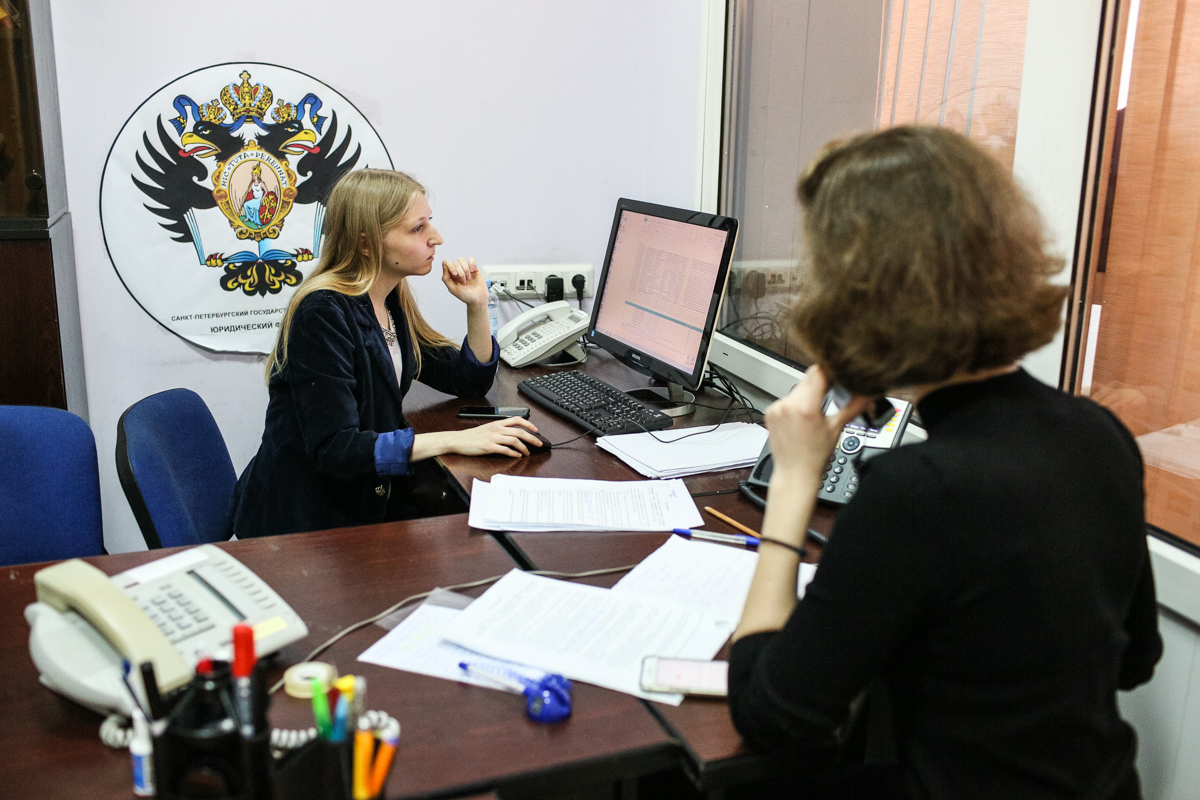The Legal Clinic of St Petersburg University continues to provide free legal advice until 31 August

Students and lecturers of St Petersburg University continue to provide free legal advice during the spread of the new coronavirus infection. For security reasons, the legal dialogue with the applicants has moved online.
Since 16 March, all consulting on legal issues at St Petersburg University is provided only through the Virtual Reception of the Clinic. Compared to last spring, the number of online applications has more than doubled - students have received 256 applications.
Traditionally, the Legal Clinic of St Petersburg University provides free legal assistance during the academic semesters: from 1 March to 5 May and from 1 October to 5 December. However, in 2020 the work continues in the online format until 31 August.
According to the director of the clinic, Associate Professor Viacheslav Nizamov, the themes of the issues as a whole have not changed. Most of them have still related to civil law, labour law, and social welfare law. The residents of the city asked about: inheritance; the protection of intellectual property; entering the military service after university; the correct registration of property; and much more. However, of course, appeals on the ‘coronavirus topic’ have become a feature of this year. The lawyers were asked to: clarify the regulations; tell what can and cannot be done during the epidemic in the city; and how to protect their labour rights.
In addition to the traditional for us ‘how to get money back for a product’ and ‘how to deregister a person’, citizens asked about current issues of illegal dismissals during the epidemic, forced unpaid vacations, and the two-week stay in self-isolation after coming back from abroad.
Associate Professor Viacheslav Nizamov, Director of the Legal Clinic
One of the clinic's consultants Anastasiia Baranova, a student at St Petersburg University, noted, ‘Despite the difficult epidemiological situation, people still remain people. They still need help with everyday issues (civil, family, and housing ones), since the relations that develop in these spheres invariably affect our lives, whether or not there are any emergencies.’
St Petersburg University also provides free assistance at the Psychological Clinic and the Centre for Financial Literacy.
Anastasiia Baranova said that, despite the non-standard format of the clinic's work, without offline consultations, the process did not stop and went on as usual. ‘Providing our assistance online, we felt how people really need help at times. Those who applied were patiently waiting for an answer, providing us with clarifications on their case, if it was necessary, and sent us messages with thanks afterwards.’ The consultations, as before, were supervised in detail by the law teachers. A written response to the applicant was sent by e-mail only after careful verification and approval.
The provision of free legal assistance in the Russian Federation is regulated by the Federal Law ‘On Free Legal Assistance in the Russian Federation’. It guarantees that citizens who need it receive qualified assistance from the professional legal community. The only condition to apply for assistance to the Legal Clinic of St Petersburg University is that the applicant's total income should not exceed 2.5 of the minimum subsistence amount (around 29,000 roubles for St Petersburg in 2020).
Until the end of the summer, you can apply for legal assistance through the Virtual Reception of the Clinic.
St Petersburg University lawyers are sure that everyone can face a legal issue, but not everyone knows how to approach it. ‘Our goal is to help a person, no matter how insoluble their issue seems to them,’ emphasised Viacheslav Nizamov.

